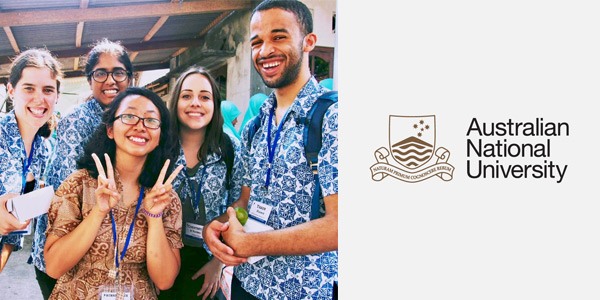Yakub Garrett is a New Colombo Plan mobility grant recipient from the Australian National University. Yakub undertook the Public Health Study Tour in July 2018.
Q: Why did you decide to undertake ACICIS’ Public Health Study Tour?
Public health is something that I can see myself pursuing, however, because I study biology, I’ve been limited in my ability to learn about the field. As such, the tour offered me a chance to explore public health, doing so within a context that allowed a more hands-on experience. It also counts towards my degree, so it seemed like too good of an opportunity to pass up on!
Q: Did you receive a New Colombo Plan Mobility Grant? If so, how did this contribute to your experience in Indonesia?
I did receive a New Colombo Plan Mobility Grant, which allowed me to complete the program without putting me in a position financially where I wouldn’t have undertaken the tour.
Q: What did you find to be the most challenging about your experience on the PHST?
The most challenging aspect of the tour for me was the fact that, being in a foreign country, I encountered cultural differences in perspectives around health and wellness that went against my own ways of thinking. This was challenging in some regards, yet it was also the most satisfying part of the tour; to be confronted by other ways of thinking not only gave me a glimpse into the outlooks and logic of those I met, but it also enabled me to reflect on my own understandings of these matters in ways I found interesting.
Q: What public health issues in Indonesia have you become more interested in/aware of as a result of this tour?
I have a greater understanding now of the nuances and complexities of having a system that needs to cater to so many different groups; Indonesia is unique in the sheer diversity of its population, geographically and culturally, so I found it interesting to see how health providers go about delivering services to groups that often have such radically different needs.
Q: Which was your favourite field trip?
I think my favourite field trips were the ones we took to the Puskesmas and Posyandu, two of the primary interfaces of health services in Indonesia. It was really interesting to see how so much of the policy and research we’d been hearing about in seminars was being implemented within communities.
Q: How do you think the Public Health Study Tour will influence your future career or studies?
I feel a large part of the tour was based on gaining an understanding of the many lenses – biological, political, geographical, and cultural – that health can be viewed through, and I hope to utilise these perspectives within my career. I also think it has enforced an awareness of how beneficial it is to take the time to listen to those with experiences different to your own, and that’s something I wish to bring to whatever line of work I end up pursuing.
Q: What did you most enjoy about the seminar series?
Hearing a range of professionals from so many different backgrounds talk about a variety of topics, some of which I never would have considered as points of interest prior to the tour, was an enjoyable part of the program. It offered me insight into both public health issues and solutions I never would have considered previously.
Q: What was your favourite aspect about visiting Indonesia?
I think it was the fact that everyone seemed willing to have a chat with you – that, and the fact that there was so much great food!


